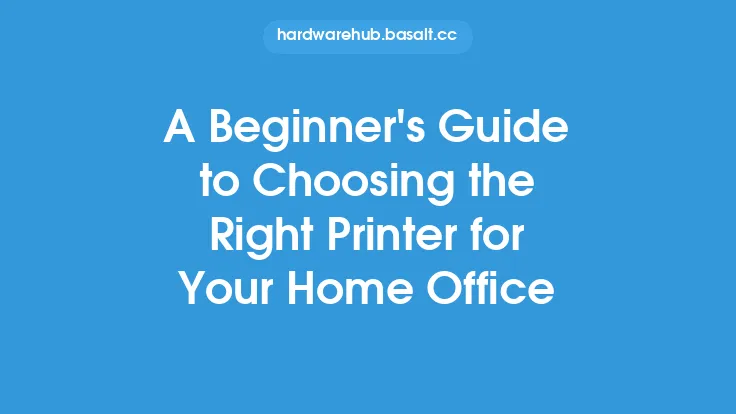When it comes to cooling systems, one of the most critical components is the heat exchanger. This device is responsible for transferring heat from one fluid to another, allowing the system to maintain a stable temperature and prevent overheating. With so many different types of heat exchangers available, choosing the right one for your system can be a daunting task. In this article, we will provide a comprehensive guide to help you select the most suitable heat exchanger for your specific needs.
Introduction to Heat Exchangers
Heat exchangers are devices that facilitate the transfer of heat from one fluid to another, without direct contact between the two fluids. They are commonly used in a wide range of applications, including power generation, chemical processing, and HVAC systems. The primary function of a heat exchanger is to cool or heat a fluid, and they can be designed to operate in various configurations, including parallel flow, counterflow, and crossflow.
Types of Heat Exchangers
There are several types of heat exchangers available, each with its own unique characteristics and advantages. Some of the most common types include:
- Shell and tube heat exchangers: These are one of the most common types of heat exchangers and consist of a series of tubes enclosed in a shell. They are widely used in power generation, chemical processing, and other industrial applications.
- Plate heat exchangers: These heat exchangers use a series of plates to separate the two fluids and are commonly used in HVAC systems, refrigeration, and other applications where a high heat transfer rate is required.
- Finned tube heat exchangers: These heat exchangers use a series of tubes with fins to increase the surface area and enhance heat transfer. They are commonly used in air-cooled heat exchangers and other applications where a high heat transfer rate is required.
- Spiral heat exchangers: These heat exchangers use a spiral design to increase the surface area and enhance heat transfer. They are commonly used in applications where a high heat transfer rate is required and space is limited.
Factors to Consider When Choosing a Heat Exchanger
When selecting a heat exchanger for your system, there are several factors to consider. Some of the most important factors include:
- Heat transfer rate: The heat transfer rate required by your system will depend on the specific application and the amount of heat that needs to be transferred. You will need to choose a heat exchanger that can provide the required heat transfer rate.
- Fluid properties: The properties of the fluids being used in your system, such as their temperature, pressure, and viscosity, will affect the performance of the heat exchanger. You will need to choose a heat exchanger that is compatible with the fluids being used.
- Space constraints: The available space for the heat exchanger will also be a factor in your selection. You will need to choose a heat exchanger that can fit in the available space and provide the required heat transfer rate.
- Cost: The cost of the heat exchanger will also be a factor in your selection. You will need to choose a heat exchanger that provides the required performance at a cost that is within your budget.
Heat Exchanger Design Considerations
When designing a heat exchanger, there are several factors to consider. Some of the most important factors include:
- Tube size and material: The size and material of the tubes used in the heat exchanger will affect its performance. You will need to choose tubes that are compatible with the fluids being used and can provide the required heat transfer rate.
- Shell size and material: The size and material of the shell used in the heat exchanger will also affect its performance. You will need to choose a shell that is compatible with the fluids being used and can provide the required heat transfer rate.
- Baffle design: The baffle design used in the heat exchanger will also affect its performance. You will need to choose a baffle design that can provide the required heat transfer rate and minimize pressure drop.
- Fouling factors: The fouling factors used in the heat exchanger will also affect its performance. You will need to choose fouling factors that are compatible with the fluids being used and can provide the required heat transfer rate.
Maintenance and Repair Considerations
When selecting a heat exchanger, it is also important to consider maintenance and repair requirements. Some of the most important factors to consider include:
- Cleaning and maintenance: The heat exchanger should be designed to be easy to clean and maintain. You will need to choose a heat exchanger that can be easily cleaned and maintained to minimize downtime and reduce maintenance costs.
- Repair and replacement: The heat exchanger should also be designed to be easy to repair and replace. You will need to choose a heat exchanger that can be easily repaired and replaced to minimize downtime and reduce maintenance costs.
Conclusion
Choosing the right heat exchanger for your system can be a complex task, but by considering the factors outlined in this article, you can make an informed decision. Remember to consider the heat transfer rate, fluid properties, space constraints, cost, and maintenance and repair requirements when selecting a heat exchanger. By choosing the right heat exchanger, you can ensure that your system operates efficiently and effectively, and provides the required cooling or heating performance.





